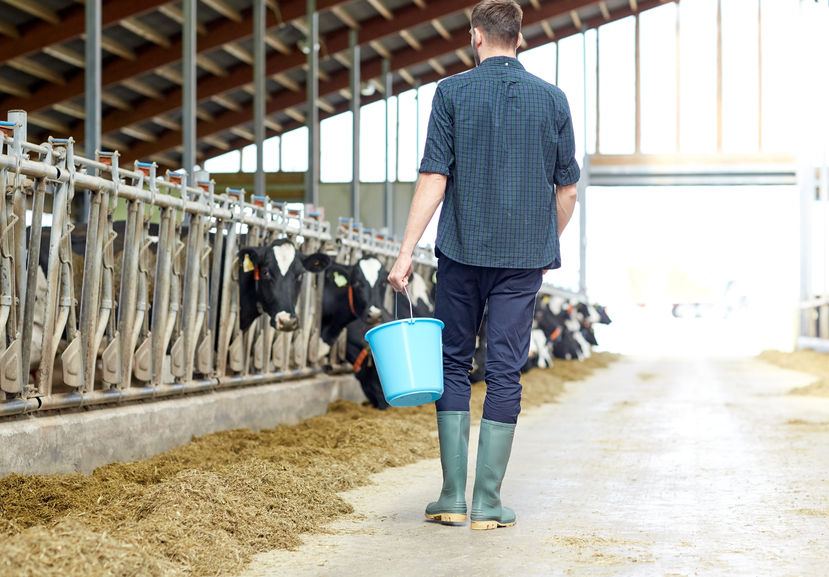
Welsh agricultural labour has fallen to its lowest level since 1998, according to official government figures.
The figures, which show a 20-year low for farm labour, were released as part of the Welsh government's Agricultural and Horticultural Survey, which has been carried out since 1867 to provide estimates of agricultural activity in Wales on an annual basis.
These annual results provide estimates for Wales as a whole for agricultural land use, livestock on farms and the number of people working on agricultural holdings. The recent report shows figures as at 1 June 2017.
The figures show that 51,943 people were employed on Welsh farms in 2017. In 1998, this figure was 61,952.
Regular and casual workers total 11,962 of the 2017 figure, while the rest is comprised of all principal farmers, directors, business partners and their spouses full-time and part-time.
However, those working for specialist contractors were not included in the figures.
'Increased mechanisation'
A Welsh Government official said the total number of farm workers in Wales has decreased over the last twenty years, reflecting the position across the UK as a whole.
However, the spokesperson said production and productivity has increased over that same period.
"The agriculture supply chain is similar to most other industries in the sense that innovation and technological advancement has led to increased mechanisation and more efficient ways of working."
Indeed, the advent of new technologies is seen as a potential remedy to replace migrant labour which could be lost in the UK after it leaves the European Union.
The spokesperson continued: "We will continue to work closely with the agriculture supply chain, including through the Agriculture Advisory Panel and via important programmes such as Farming Connect, to help realise a prosperous and resilient industry as we transition from the EU.
"The Agricultural Advisory Panel for Wales (the Panel) was established in 2016 and is an independent advisory body whose remit is to promote careers in agriculture for those working in the industry as well as new entrants. The Panel also proposes agricultural wages rates for approval by the Welsh Ministers."
British workers
The figures follow a warning by a leading industry figurehead that British workers should prepare to take up the food and farming jobs currently carried out by migrant workers if European labour is lost to British businesses following Brexit.
According to an egg industry expert, EU migrants currently accounted for up to 60 per cent of people employed in UK egg packing centres and as many as 40 per cent of those employed on farms.
In November, Cornwall county council has asked the government for special permission to implement area-specific migration laws because of a drain on labour.
New research by the council shows that Cornish farms are already unable to fully harvest crops this year due to a sharp fall in migrant farm labour.
The National Farmers’ Union (NFU) explained that that fruit and vegetables were being left to rot because of a shortage of seasonal workers, suggesting that more labour were needed for unskilled roles.
